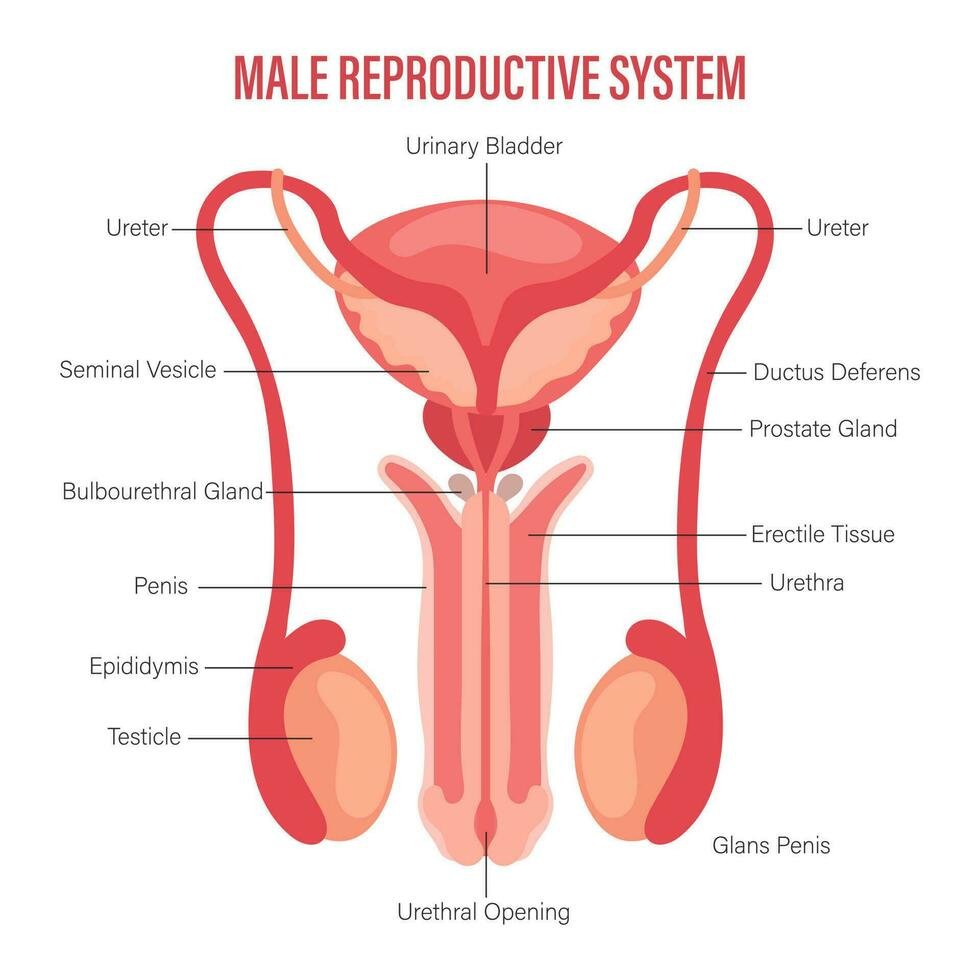Lifestyle Factors: How Smoking, Alcohol, and Drug Use Affect Sperm Count and Quality
When it comes to maintaining good health, lifestyle choices play a significant role, especially when it comes to reproductive health. If you’re considering starting a family or just want to understand how your habits affect you, it’s crucial to explore how smoking, alcohol, and drug use impact sperm count and quality. Let’s take a closer look at these factors and how they can influence male fertility in an easy-to-understand way.
Smoking: A Habit That Hits Hard
Smoking is well-known for its adverse effects on overall health, and reproductive health is no exception. If you’re a smoker, it’s important to know that smoking can significantly impact your sperm count and quality. The harmful chemicals in cigarettes can damage the DNA in sperm, leading to decreased fertility and potential complications in conception.
Studies have shown that smoking can reduce sperm count and motility, which means fewer sperm are available to reach the egg. Additionally, smoking can cause sperm to be less effective at fertilizing an egg due to increased oxidative stress and inflammation. If you’re trying to conceive or simply want to improve your overall health, quitting smoking can be one of the most beneficial changes you make.
Alcohol: Moderation is Key
When it comes to alcohol, moderation is crucial. Drinking excessively can have a negative impact on sperm count and quality. Alcohol affects hormone levels, which can interfere with the production of sperm. High levels of alcohol consumption can lead to lower testosterone levels and reduced sperm production.
Additionally, heavy drinking can lead to poor sperm motility and abnormal sperm shape, which can make it more difficult for sperm to reach and fertilize an egg. On the other hand, moderate alcohol consumption has less of an impact, but it’s still wise to be cautious. If you’re aiming to optimize your fertility, limiting alcohol intake or abstaining altogether can be a wise choice.
Drug Use: A Double Trouble
Drug use, whether recreational or prescribed, can also affect sperm health. Drugs like marijuana, cocaine, and opioids can lead to a decrease in sperm count and motility. Marijuana use, in particular, has been linked to lower sperm concentrations and abnormal sperm morphology. It can also affect hormone levels, which are crucial for sperm production.
Opioids and certain prescription medications can disrupt hormonal balance and impair sperm production. If you’re on medication, consult your healthcare provider about its potential effects on fertility. Avoiding recreational drugs and discussing any concerns with your doctor can help maintain or improve your sperm quality.
General Health: Keep Your Body in Check
Maintaining good general health is essential for optimal sperm quality. Smoking, excessive alcohol, and drug use can all contribute to overall poor health, which indirectly affects sperm health. Ensuring you have a balanced diet, regular exercise, and adequate sleep supports your body’s ability to produce healthy sperm.
If you’re worried about how lifestyle factors might be affecting your fertility, consider making positive changes. Quit smoking, reduce alcohol intake, and avoid drugs. These steps can have a significant impact on your sperm count and quality, and they’re beneficial for your overall well-being too.
Seeking Professional Help: Your Fertility Partner
If you’ve made lifestyle changes and are still concerned about your sperm health, it’s a good idea to seek professional advice. A fertility specialist or urologist can provide tailored advice and conduct tests to evaluate your sperm count and quality. They can help identify any underlying issues and offer solutions or treatments to improve your fertility.
Remember, improving sperm health is not just about avoiding negative factors; it’s also about supporting your body with positive habits. Regular check-ups and consultations with healthcare professionals can keep you on track and provide peace of mind as you work towards your fertility goals.
Embrace Positive Changes: A Healthier You
Making positive lifestyle changes can have a profound impact on your sperm health and overall well-being. Cutting back on smoking, alcohol, and drugs while focusing on a healthy lifestyle can lead to better fertility outcomes and a healthier you. Small adjustments in your habits can make a big difference, and they are a step towards a brighter future.
Understanding how smoking, alcohol, and drug use affect sperm count and quality is the first step in making informed choices about your health. By embracing healthier habits and seeking professional guidance, you’re taking proactive steps to enhance your reproductive health and overall quality of life. Here’s to a healthier lifestyle and a brighter future ahead!
Dietary Influences: How Foods Can Impact Sperm Health

Your diet isn’t just about maintaining a healthy weight or boosting your energy levels. It also plays a crucial role in sperm health. What you eat can either support or hinder your fertility, making it essential to choose your foods wisely. Let’s dive into how different foods can impact sperm health and explore ways to boost your reproductive wellness through your diet.
Foods That Boost Sperm Health: Your Fertility Allies
Eating a balanced diet rich in specific nutrients can significantly enhance sperm health. Start by incorporating foods high in antioxidants. Fruits like berries, oranges, and pomegranates are packed with vitamins and antioxidants that help protect sperm from oxidative stress. This protection is crucial for maintaining healthy sperm function and improving overall fertility.
Omega-3 fatty acids are another key player. Found in fatty fish such as salmon, mackerel, and sardines, omega-3s can improve sperm count and motility. They help keep the sperm cell membranes healthy, which is essential for optimal function. If you’re not a fan of fish, consider adding chia seeds, flaxseeds, or walnuts to your diet as plant-based sources of omega-3s.
Zinc is also vital for sperm production and health. Foods rich in zinc include pumpkin seeds, cashews, and lean meats like beef and chicken. Zinc supports healthy sperm development and testosterone production, both of which are important for fertility. Including a variety of these zinc-rich foods in your diet can help support your reproductive health.
Foods to Avoid: The Culprits That Can Hinder Sperm Health
Just as there are foods that support sperm health, there are also those that can negatively impact it. Processed foods high in sugar and unhealthy fats can harm your sperm quality. These foods contribute to oxidative stress and inflammation, which can reduce sperm count and motility.
Trans fats, commonly found in fried foods, baked goods, and many processed snacks, can disrupt hormone levels and damage sperm cells. Opt for healthier fats, such as those from avocados, nuts, and olive oil, instead. Cutting back on processed foods and replacing them with whole, nutrient-dense options is a great way to support sperm health.
Another food group to watch out for is dairy. Some studies suggest that high dairy consumption might be linked to lower sperm quality in certain individuals. If you’re concerned, try reducing your dairy intake or choosing alternatives like almond or oat milk. This doesn’t mean you need to eliminate dairy entirely, but moderating your intake might be beneficial.
Balancing Your Diet: Tips for a Fertility-Friendly Plate
Maintaining a diet that supports sperm health involves balancing different food groups and focusing on nutrient-rich options. Incorporate a variety of fruits and vegetables into your meals to ensure you’re getting a broad range of vitamins and minerals. Leafy greens like spinach and kale are especially beneficial due to their high folate content, which supports healthy sperm production.
Whole grains are another excellent choice. Foods like brown rice, quinoa, and whole-wheat bread provide essential nutrients and fiber that help regulate blood sugar levels and support overall health. These grains are also a good source of B vitamins, which are important for energy metabolism and reproductive health.
Hydration is also key to maintaining good sperm health. Drink plenty of water throughout the day to stay hydrated. Proper hydration helps in the production of healthy sperm and supports overall bodily functions. If plain water isn’t your thing, try infusing it with fresh fruits or herbs for a refreshing twist.
Making Positive Changes: Small Adjustments for Big Benefits
Improving your diet doesn’t have to be overwhelming. Start with small changes, like incorporating a serving of berries into your breakfast or swapping out sugary snacks for a handful of nuts. Gradually, these adjustments will become part of your routine and can lead to noticeable improvements in your sperm health.
Remember, consistency is key. Maintaining a balanced diet with a focus on nutrient-dense foods will provide your body with the tools it needs for optimal sperm production and health. Making these positive changes can have a significant impact on your fertility and overall well-being.
In conclusion, what you eat can have a profound effect on your sperm health. By choosing foods that support fertility and avoiding those that can harm it, you’re taking proactive steps toward improving your reproductive wellness. Enjoy a variety of nutrient-rich foods, stay hydrated, and embrace a balanced diet for the best results. Your body—and your future self—will thank you!
Environmental Toxins: Common Hazards and Their Effects on Sperm Production

We often hear about how lifestyle choices like diet and exercise affect our health, but environmental toxins can also play a big role. Many of us are exposed to various pollutants and chemicals in our everyday lives, and these can have a surprising impact on sperm production. Let’s dive into some common environmental hazards and how they can affect your reproductive health.
Chemicals in Everyday Products: Hidden Threats to Sperm Health
You might not realize it, but the everyday products you use can contain chemicals that impact sperm production. For instance, many personal care items like shampoos, lotions, and deodorants contain parabens and phthalates. These chemicals are often used as preservatives or to add fragrance, but they can disrupt hormonal balance, which is crucial for sperm production.
Parabens mimic estrogen in the body, potentially leading to hormonal imbalances that can affect sperm count and quality. Phthalates, on the other hand, are linked to lower sperm concentration and reduced motility. To reduce your exposure, opt for natural or organic personal care products that are free from these harmful chemicals.
Pollution and Pesticides: How Air Quality and Chemicals Affect Fertility
Air pollution is another environmental factor that can affect sperm health. Pollutants like heavy metals and particulate matter can increase oxidative stress in the body. This stress can damage sperm DNA, leading to lower sperm quality and reduced fertility. Living in areas with high pollution levels can exacerbate these effects, so it’s beneficial to be aware of air quality in your area.
Pesticides used in agriculture are also a concern. These chemicals can contaminate food and water sources, leading to potential exposure. Research suggests that exposure to certain pesticides is associated with lower sperm count and poor sperm quality. Whenever possible, choose organic produce to minimize your exposure to these harmful substances.
Household Chemicals: Cleaning Up Your Environment for Better Health
Household cleaning products often contain harsh chemicals that can impact sperm health. Many cleaners, disinfectants, and air fresheners include substances like ammonia, chlorine, and synthetic fragrances. These chemicals can contribute to poor indoor air quality and lead to increased exposure to toxins.
To create a healthier living environment, switch to natural or eco-friendly cleaning products. Baking soda, vinegar, and lemon juice can be effective, non-toxic alternatives for cleaning your home. By reducing your exposure to harmful chemicals, you’re taking an important step towards better reproductive health.
Heavy Metals: Hidden Dangers in Your Environment
Heavy metals such as lead, mercury, and cadmium are found in various environmental sources and can impact sperm production. Lead can be present in old paint, plumbing pipes, or contaminated soil. Mercury is often found in certain fish, and cadmium can be in cigarette smoke and industrial emissions.
Exposure to these metals can lead to decreased sperm count and lower sperm quality. If you’re concerned about heavy metal exposure, consider getting your home tested for lead or mercury levels and be mindful of your fish consumption. Reducing exposure to these metals can help protect your sperm health and overall well-being.
Workplace Hazards: Risks in Certain Occupations
Certain jobs expose workers to chemicals and conditions that can affect sperm production. For example, occupations in manufacturing, agriculture, and construction may involve exposure to pesticides, solvents, or heavy metals. Prolonged exposure to these substances can negatively impact sperm health.
If you work in an environment with potential hazards, take precautions to protect yourself. Use protective gear, follow safety guidelines, and be aware of the chemicals you’re handling. Additionally, discussing your occupational risks with a healthcare professional can help you understand how to minimize potential impacts on your reproductive health.
Reducing Exposure: Simple Steps for a Healthier Environment
Reducing your exposure to environmental toxins doesn’t have to be overwhelming. Start by making small changes, like opting for natural or organic products, improving indoor air quality, and being mindful of your diet. These simple steps can significantly reduce your exposure to harmful chemicals and contribute to better sperm health.
Consider adopting practices such as using air purifiers, choosing organic foods, and opting for eco-friendly products. Making these adjustments can create a healthier living environment and support your overall well-being.
In summary, environmental toxins can have a significant impact on sperm production and reproductive health. By understanding the common hazards and taking steps to reduce your exposure, you’re making a positive impact on your fertility. Creating a healthier environment and making informed choices can lead to better sperm health and contribute to overall wellness. So, take charge of your environment and enjoy the benefits of a healthier, more balanced life!
Stress and Fertility: How Chronic Stress Affects Sperm Count and Ways to Manage It

Life can throw a lot at us, and stress is often a constant companion. But did you know that chronic stress can impact more than just your mood? It can also affect your fertility, particularly your sperm count. Understanding how stress influences sperm health and finding ways to manage it can be key to boosting your reproductive wellness. Let’s explore the connection between stress and sperm count and discover some practical strategies to keep stress in check.
Stress and Sperm Health: The Hidden Connection
Chronic stress affects your body in many ways, and one significant impact is on sperm health. When you’re under constant stress, your body releases cortisol, a hormone that can disrupt your hormonal balance. This disruption can lead to lower testosterone levels, which are crucial for sperm production.
Low testosterone can result in reduced sperm count and poorer sperm quality. Stress can also impair sperm motility, meaning sperm may have difficulty moving effectively, which can affect fertility. If you’re dealing with chronic stress, it’s important to understand that it’s not just a mental health issue—it can have real effects on your reproductive health.
Recognize Stressors: Identifying What’s Causing Your Stress
To manage stress effectively, start by identifying your stressors. These can be work-related pressures, relationship issues, financial concerns, or even daily life challenges. Knowing what’s causing your stress is the first step in addressing it.
Once you’ve pinpointed your stressors, consider making small changes to reduce their impact. For instance, if work is a major source of stress, explore ways to manage your workload better or talk to your supervisor about reducing your stress level. Recognizing and addressing the root causes of your stress can help alleviate its impact on your overall health and sperm count.
Stress Management Techniques: Simple Strategies for a Calmer Life
Managing stress is crucial for maintaining healthy sperm and overall well-being. Incorporating stress-reducing techniques into your daily routine can make a significant difference. Here are a few strategies to consider:
- Exercise Regularly: Physical activity is one of the most effective ways to manage stress. Exercise releases endorphins, which are natural mood boosters. Aim for at least 30 minutes of moderate exercise most days of the week. Whether it’s jogging, swimming, or a brisk walk, regular exercise can help reduce stress and improve your overall health.
- Practice Mindfulness and Meditation: Mindfulness and meditation can help calm your mind and reduce stress. Spending just a few minutes each day focusing on your breath or practicing meditation can lower cortisol levels and promote relaxation. Try guided meditation apps or simple breathing exercises to incorporate mindfulness into your routine.
- Prioritize Sleep: Quality sleep is essential for managing stress and maintaining healthy hormone levels. Aim for 7-9 hours of restful sleep each night. Create a relaxing bedtime routine, limit screen time before bed, and ensure your sleep environment is comfortable to improve your sleep quality.
- Healthy Eating: A balanced diet can also help manage stress. Eating foods rich in antioxidants, vitamins, and minerals supports your body’s ability to cope with stress. Include plenty of fruits, vegetables, whole grains, and lean proteins in your diet. Avoid excessive caffeine and sugar, which can contribute to stress and anxiety.
Seeking Support: Don’t Go It Alone
Sometimes, managing stress on your own can be challenging. Seeking support from friends, family, or a professional can be incredibly beneficial. Talking to someone about what you’re going through can provide relief and offer new perspectives on managing stress.
Consider reaching out to a counselor or therapist if you find that stress is overwhelming. Therapy can help you develop coping strategies, address underlying issues, and improve your overall mental health. Support groups can also provide a sense of community and shared experiences.
Incorporate Relaxation: Find What Works for You
Finding relaxation techniques that work for you is crucial. Different methods resonate with different people, so it’s worth experimenting with various activities to see what helps you unwind. Whether it’s reading a book, taking a warm bath, or spending time in nature, make time for activities that bring you joy and relaxation.
Incorporating relaxation into your routine can be as simple as setting aside a few minutes each day for yourself. Enjoying hobbies, spending time with loved ones, or engaging in creative activities can all contribute to stress relief and overall well-being.
Balance and Self-Care: Prioritize Your Well-Being
Ultimately, managing stress is about finding balance and prioritizing self-care. By recognizing the impact of stress on your sperm health and implementing effective stress management strategies, you can support your fertility and improve your quality of life. Remember that taking care of your mental and emotional well-being is just as important as taking care of your physical health.
In summary, chronic stress can negatively affect sperm count and quality, but by understanding its impact and adopting stress management techniques, you can improve your reproductive health. Embrace relaxation strategies, seek support when needed, and prioritize self-care to keep stress in check. With a balanced approach, you’ll be on your way to a healthier, more stress-free life.
